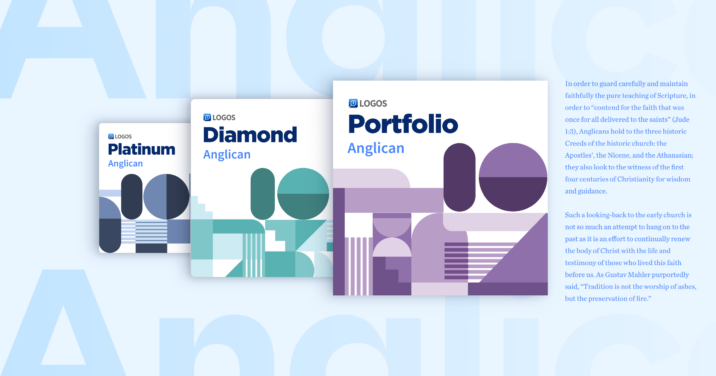Before his ascent into heaven, Jesus told his disciples that, after waiting for and receiving the gift of the Holy Spirit, they were to go into all the world, making “disciples of all nations, baptizing them in the name of the Father and of the Son and of the Holy Spirit” (Matt 28:19). Very early on in the centuries following the ascension of Jesus, the gospel came to what we now call the British Isles (the land of a people called the Angle—“Angle-land”), where it flourished for centuries.
At the time of the reformations which swept across the Christian world in the sixteenth century, the church in England underwent a series of reforms which sought renewal by removing all in doctrine or practice that was contrary to Scripture or to the unified witness of the early church. It was from that movement that what is called “Anglicanism” emerged.
The Anglican Church in North America’s website summarizes the centuries which followed the Reformation:
As the English language spread with the British empire, so did Anglican Christianity. When Anglicans resettled in new lands, they brought their personal faith with them. Chaplains and pastors were often among their number. Additionally, many Anglicans traveled as missionaries to share the Gospel.
Many of the names of these men and women are familiar already to us, though many are unaware that they were Anglican: Henry Martyn, William Jowett, James Hannington, Edith Eleanor Newton, Hannah Riddell, and Samuel Ajayi Crowther are among those who helped spread Anglican Christianity across the globe.
Today, the Anglican Communion is a worldwide family of churches, the third largest body of believers in the world, composed of over eighty million brothers and sisters—who follow the trajectory of that mission from Jerusalem to England, and then, from England through to the ends of the world.
What do Anglicans believe?
Anglicans are, first of all, Christians. While a great degree of variance exists among Anglicans on several theological points of doctrine or practice, and while Anglicanism is designed to allow for a great degree of charity in these differences, Anglican belief begins with the Holy Scriptures of the Old and New Testaments. The 39 Articles of Religion declare that the Bible “containeth all things necessary to salvation.” Whatever else Anglicans believe it must be proved and reasoned under the authority of Scripture.
In order to guard carefully and maintain faithfully the pure teaching of Scripture, in order to “contend for the faith that was once for all delivered to the saints” (Jude 1:3), Anglicans hold to the three historic creeds: the Apostles’, the Nicene, and the Athanasian; they also look to the witness of the first four centuries of Christianity for wisdom and guidance.
Such a looking-back to the early church is not so much an attempt to hang on to the past as it is an effort to continually renew the body of Christ with the life and testimony of those who lived this faith before us. As Gustav Mahler purportedly said, “Tradition is not the worship of ashes, but the preservation of fire.”
Likewise, coming out of the reformations of the sixteenth century, the framers of Anglicanism created the 39 Articles of Religion bound together in the Book of Common Prayer, a document which aimed not so much to cover all aspects of life and faith, like other confessional or catechetical documents produced in the Reformation, as to provide ground rules for doctrine and worship that kept in-step with the Scriptures and the creeds while learning lessons from the problems to which the Reformation responded.
Much like the creeds, the 39 Articles of Religion affirm the essentials of faithful Christianity—things like faith in the Trinity, the nature of Jesus Christ, Christ’s death and resurrection, the authority of the Scriptures. And yet they go on to clarify points of contention in the Reformation—things like original sin, justification, the place of works in the life of the faith, and the nature of the sacraments.
Most importantly, Anglicans place a huge emphasis on the life of worship. The Book of Common Prayer is an important tool for ordering Anglican worship and devotion, but it also serves Anglican theology. Anglican theology cannot be done in a worship vacuum. Anglican theology is shaped by Anglican worship; it is born out of a life of worship. Anglican theology aims at worship as the end and goal of theology. Good Anglican theology aims to bear fruit in prayer and worship.
In more recent decades, renewed theological struggles have shaken the Anglican Communion. On the whole, these struggles center around the authority of Scripture in the life of the church. Thus, a new generation of global Anglicans has begotten a new guiding document for Anglican faith and practice, The Jerusalem Declaration, the goal of which is to again bring scriptural clarity to areas and issues which plague the contemporary church.
Do Anglicans study the Bible?
The Bible is the beginning for all Anglican theology. Every jot and tittle speaks of Jesus (John 5:39). Article VII of the 39 Articles is clear:
The Old Testament is not contrary to the New; for both in the Old and New Testament everlasting life is offered to mankind by Christ, who is the only Mediator between God and Man.
The Book of Common Prayer provides both daily and Sunday lectionaries which offer a selection of readings from across the canon of Scripture: an Old Testament reading, a Gospel reading, an epistle or latter New Testament reading, and portions of the Psalms. This life of prayer, worship, and private study feeds the academic or scholarly life of formal Anglican theology. Anglican theology is written within the context of daily Scripture readings which are, in turn, the basis for Anglican prayer—as the prayer for the Second Sunday in Advent exemplifies:
Blessed Lord, who caused all holy Scriptures to be written for our learning: Grant us so to hear them, read, mark, learn, and inwardly digest them, that we may embrace and ever hold fast the blessed hope of everlasting life, which you have given us in our Savior Jesus Christ; who lives and reigns with you and the Holy Spirit, one God, for ever and ever. Amen.
Some distinctives of Anglican Bible study
Whether one is preparing a sermon, writing a theological essay, preparing a Bible study for a small group, or journaling through private devotions, there are a couple of helpful distinctives about the way in which Anglicans go about the study of Scripture.
1. Scripture cannot be pitted against itself
Article XX of the 39 Articles of Religion states that one cannot “expound one place of Scripture, that it be repugnant to another.” While we may have trouble reconciling James 2:24 (“faith without works is dead”) with Ephesians 2:9 (“not of works lest any man should boast”), we cannot read them in a way that puts them at odds with each other or which renders one inapplicable.
2. Scripture cannot be contradicted
It is the pure Word of God, every part of it. This is true of both the text of Scripture, as well as the form which that text takes. There are not some parts of Scripture which are truly inspired and others which are like the husk on the outside of corn which must be discarded in order to get to the “real meaning.” The odd numbers in the fourth Gospel, the locations of the tribal allotments in Joshua, the symbols in Revelation—all are as much a part of the Bible as John 3:16.
3. Scripture forms us inwardly and draws us to prayer and worship
God’s Word is alive; it is “living and active” (Heb 4:12). When Scripture speaks, God speaks. The words of God should always drive us to “present our bodies as living sacrifices” (Rom 12:1). The Bible leads us to worship, it leads us to holiness of life, and it leads us outward into the world to proclaim the good news of Jesus.
Who are some key Anglican theologians?
The list of Anglican theologians runs quite long—an exhaustive list would exceed the word-limits of this article many times over. There are, however, some key theologians whose lives and works carried so great an impact that their names have a great likelihood to appear as one studies the Bible in the Anglican tradition, at least in contemporary times:
- Thomas Cranmer (1489–1556)
- John Jewel (1522–1571)
- Richard Hooker (1554–1600)
- Lancelot Andrewes (1555–1626)
- Geroge Herbert (1593–1633)
- Jeremy Taylor (1613–1667)
- William Law (1686–1761)
- John Wesley (1703–1791)
- Hannah More (1745–1833)
- Charles Simeon (1759–1836)
- John Keble (1792–1866)
- E. B. Pussey (1800–1882)
- J. C. Ryle (1816–1900)
- Evelyn Underhill (1875–1941)
- C. S. Lewis (1898–1963)
- E. L. Mascall (1905–1993)
- John Stott (1921–2011)
- J. I. Packer (1926–2020)
- Fleming Rutledge (1937—)
- Gerald Bray (1948—)
- N. T. Wright (1948—)
- Rowan Williams (1950—)
- Alastair McGrath (1953—)
- Hans Boersma (1961—)
Resources for studying the Bible as an Anglican
Given the long history of the Anglican tradition, and given how much there is on offer in it for studying the Bible, knowing where to go first can be daunting. The good news is that the first few steps are simple:
1. Find a quality Bible (or Bible app!)
Supplement this with a system for making notes, highlights, and annotations that you can draw from in future study.
2. Get a Book of Common Prayer
There you will find the offices for daily prayer, services for numerous occasions from Holy Communion to the Burial of the Dead, as well as the lectionary and the historical documents of the church (e.g., The 39 Articles of Religion, and the creeds). There are several different iterations of the Book of Common Prayer. My recommendation is the 2019 edition put out by the Anglican Church in North America.
3. Study the Bible alongside the pastors and theologians of the early church
This third step follows the lead of both the early Anglican Reformers and many of those who have come in their wake. A good resources is the Ancient Christian Commentary on Scripture series. While we are not necessarily bound to everything that the ancient Christians wrote (the way we are to the Bible), we can learn much from asking ourselves, “How did the earliest Christians understand and interpret this passage?” Logos 10 Anglican Gold carries a massive selection of resources from the early church and does just this. Additionally, Logos 10 Anglican Gold offers access to countless theological and exegetical tools to help you walk through the Scriptures.
4. Pick up a solid commentary by a more contemporary Anglican theologian
You have many to choose from. Try N. T. Wright, Hans Boersma, or Fleming Rutledge. For we can also learn much by asking “How do other Christians, who share my own contemporary moment, understand this passage?”
In parting, I must point out that Logos has acquired, and continues to acquire, much of the work of the theologians associated with the Theopolis Institute—theologians such as Peter Leithart and James B. Jordan. The work of these two theologians in opening up the Scriptures faithfully and creatively is both illuminating and accessible. If Anglicans have developed a fruitful method of Bible study in our own tradition, our history also evidences the fruit that comes from studying the Bible across traditions. So if you are looking for resources outside Anglican boundaries, I’d recommend the resources Logos has on offer from one of those theologians, perhaps beginning with On Earth As It Is In Heaven.
Conclusion
In all of this, remember, to draw near to the Lord in prayer. The goal in all our study and learning is to be conformed more fully to the image of Jesus (cf. Rom 8:29) and to know more fully him who to know is eternal life (John 17:3).
Anglican Bible study moves from prayer into study and from study back into prayer. Perhaps a good Anglican way to begin studying the Bible is with a small prayer before and after each session. Something like this, taken from the Psalms:
May the words of my lips and the meditation of my heart be acceptable to you, O Lord, my Rock and my Redeemer. Amen. (Ps 19:14)
Related articles
Recommended resources
Ancient Christian Commentary on Scripture Complete Set | ACCS (29 vols.)
Regular price: $499.99







